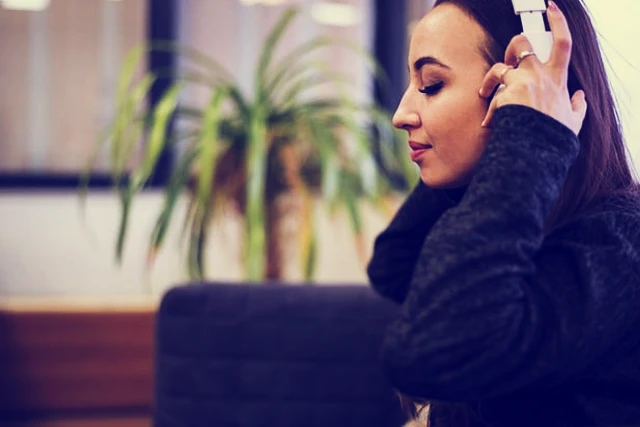Reduce Stress in 7 Days: A Simple Plan for a Calmer Mind
Reduce Stress in 7 Days: A Simple Plan for a Calmer Mind
If the idea of self-care feels overwhelming, and you’re just trying to reduce stress, I want you to know you’re not alone. So many of my clients tell me they struggle to prioritise themselves.
Life gets busy, stress builds up, and before you know it, you’ve fallen into survival mode, just getting through the day rather than truly living it.
Simple Ways to Reduce Stress Without Overwhelm
And when we finally decide it’s time to start looking after ourselves, it can feel like a huge task. Suddenly, it seems like we need a perfect morning routine, daily journaling, meditation, and an hour of exercise just to feel like we’re doing it right. But that kind of all-or-nothing thinking can be the very thing that stops us from even starting.
Instead of trying to change everything at once, let’s keep it simple.
Seven small steps, one per day, to help you build habits that support your mental health. They don’t take much time, they don’t need any special tools, and they can all be adapted to fit your life.
If you’ve been feeling stuck, disconnected, or like you don’t even know where to start, this is for you.
The 7-Day Plan to Reduce Stress
Day 1: Start with a post-it-note Affirmation
I know that for some people, journaling sounds like a fantastic idea in theory, but in reality, it just feels like another thing to do. So let’s make it easier.
Grab a post-it note. Write down three simple affirmations, things you want to believe about yourself, even if you’re not quite there yet.
Stick it somewhere you’ll see it throughout the day, on your mirror, fridge, or laptop. The words you see regularly start to shape the way you think. This tiny action can start to reduce stress by shifting your mindset over time.
Day 2: Move for Your Mood
One of the biggest things I talk about with my clients is how movement is not just about fitness, it’s about your mental and emotional well-being. And I know that when life is hectic, exercise can feel like a huge task. But it doesn’t have to be.
If you do one thing today, just move. Put on your favourite song and dance around while getting dressed. Stretch for five minutes. Walk while you’re on the phone. Move in a way that feels good, not like a chore.
Your body holds onto stress. When you move, you help it let go.
Day 3: Step Outside and Ground Yourself
Spending time outside is one of the best things you can do for your mental health. Fresh air, natural light, and simply being in nature have been shown to reduce stress and anxiety. But more than that, getting outside gives you a moment to pause.
If you can, take a walk somewhere green, being around trees, water, or open spaces can be deeply grounding.
If you’re feeling anxious or overwhelmed, try this: kick off your shoes and stand on the grass for a moment. Rest your hand against a tree, take a deep breath, and just listenbir, ds, the wind, even the distant hum of life carrying on around you.
These little moments of connection with nature can bring a kind of calm that’s hard to find when we’re caught up in the busyness of daily life.
Day 4: Mindful Skincare to Reduce Stress and Practise Self-Care
Many of the women I support struggle to prioritise themselves. Even the idea of self-care can feel indulgent. But I want to remind you that taking care of yourself is not a luxury, it’s essential. Introducing a skin-care routine is a great way to care for your skin and reduce stress at the same time.
One of the easiest ways to include self-care in your daily routine is through something you’re already doing, your skincare for example. Instead of rushing through it, slow down. Massage your face as you cleanse. Apply your moisturiser with intention. As you do it, take a deep breath and ask yourself: What went well today?
It’s not about expensive products, it’s about making a daily act of care feel meaningful.
Day 5: Square Breathing for Instant Calm
I’m a big advocate of Square Breathing, a simple but very powerful breathwork technique that can quickly help you feel more grounded. It’s something you can do anywhere, anytime, whenever you feel anxious or overwhelmed.
Here’s how it works:
- Inhale for 4 counts
- Hold for 4 counts
- Exhale for 4 counts
- Hold for 4 counts
Repeat this cycle a few times, and notice how your body starts to relax. Your breath is always there as an anchor, this is a simple way to use it to your advantage.
Day 6: Journaling Lite (No Pressure, Just One Line)
Journaling doesn’t have to mean sitting down for half an hour and pouring your heart out onto the page. If that works for you, great, but if not, here’s a much easier way to do it.
Each night, write down:
- One thing you’re grateful for
- One small intention for tomorrow
That’s it, just two sentences. Over time, this practice can help shift your mindset and bring more awareness to the good things in your life. Want more journaling ideas? I’ve shared a few simple tips in a separate blog you might enjoy

Day 7: Sensory Self-Care
When we think of treating ourselves, we often reach for the things that give us a quick dopamine hit, wine, chocolate, scrolling on our phones. But what if you could nurture yourself in a way that actually replenishes you, rather than just distracting you?
Try this:
- Light a candle and enjoy the scent.
- Play music that makes you feel calm.
- Wrap yourself in a cosy blanket.
- Take a warm bath or a long shower.
- Spend five minutes just being, without a screen in front of you.
Tuning into your senses in this way helps bring you back into the present moment, and that’s often exactly what we need when life feels overwhelming. Sensory self-care isn’t just soothing, it’s a simple, powerful way to reduce stress and reconnect with yourself.
Struggling to Switch Off? Try Hypnosis for Overthinking
Need help switching off? My Stop Overthinking Hypnosis recording can guide you into a deeply relaxed state, making it easier to let go of worry and reclaim your peace of mind.
One Small Step at a Time
That’s it, seven simple, gentle ways to bring more care and calm into your days. No big changes, no pressure to do everything perfectly, just small steps that help you feel more grounded, more present, and more connected to yourself.
Try adding one thing each day for the next week, and see what works for you. Maybe you’ll stick with one, maybe you’ll love them all, but either way, you’re making space for yourself. And that’s something worth celebrating.
If you’ve enjoyed this 7-day reset and want to keep building calm and focus into everyday life, you might like to explore The Clear Forward Tools™. These resources are designed to help you reduce overwhelm, regain clarity, and take steady steps forward when life feels busy or stressful.
They’re especially supportive for people who recognise ADHD traits or struggle with focus, motivation, or emotional overload, but they’re equally useful for anyone wanting a structured, compassionate way to create balance and progress.








